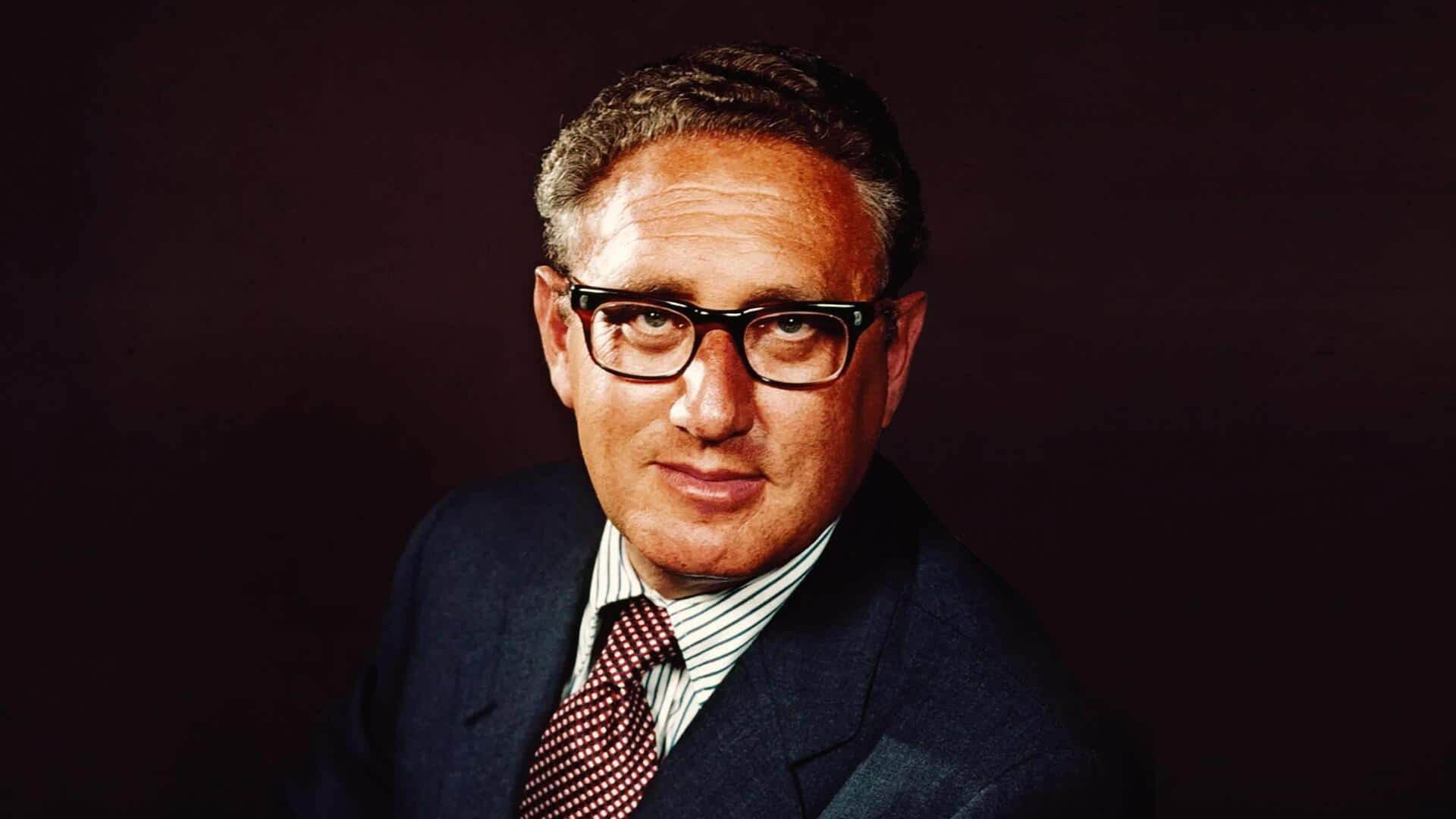
Former US Secretary of State Henry Kissinger dies at 100
What's the story
Former United States (US) Secretary of State and Nobel Peace Prize winner Henry Kissinger died at the age of 100 on November 29. Kissinger served under two American presidents and left an indelible mark on US foreign policy. According to his geopolitical consulting firm, Kissinger Associates Incorporated, the former diplomat passed away at his home in Connecticut.
Details
Controversial figure
While Kissinger is hailed by many for his broad intellectual experience, several others labeled him a war criminal due to his support for anti-communist dictatorships, primarily in Latin America. During his later years, his travels were circumscribed by efforts by other countries to question or arrest him over the past foreign policy of the US.
More details
Kissinger's major work during 1970s under US President Nixon
In the 1970s, the German-born Jewish refugee played a key role in many of the significant global events of the decade under Republican US President Richard Nixon. Kissinger's efforts led to the US diplomatic opening with China, expanded ties between Israel and other Arabian nations, landmark US-Soviet arms control talks, and the Paris Peace Accords with North Vietnam.
Know more
Know about Kissinger's role under US presidents
Serving as a consultant to government agencies, Kissinger acted as an intermediary for the State Department in Vietnam during 1967. Using his connections with President Lyndon B Johnson's administration, he also shared details regarding peace talks with Nixon's camp. Though his reign as the brains behind the US's foreign policy weakened with Nixon's 1974 resignation, he remained a diplomatic force under President Gerald Ford.
More information
Controversy surrounding Kissinger's Nobel Peace Prize
His 1973 Peace Prize award, which he shared jointly with North Vietnam's Le Duc Tho for a cease-fire agreement that year, still remains one of the most controversial prizes. Two of the members of the Nobel committee stepped down over Kissinger's selection for the honor as questions were raised about the US's secret bombing of Cambodia.
Further details
Kissinger's loss of power under President Reagan
After Ford lost in 1976, Kissinger's days at the helm of government power were essentially over as Ronald Reagan distanced himself from him during his White House tenure. While President George Bush picked Kissinger to head an investigative committee for the 9/11 attacks in 2001, he was later forced to step down over a conflict of interest with several of his consulting firm's clients.
Further information
Kissinger's life away from government affairs
Upon leaving the government, the late diplomat set up a high-powered, high-priced consulting firm in New York named Kissinger Associates and offered advice to the corporate elites of the world. Furthermore, Kissinger served on company boards and several foreign policy and security forums, authored numerous books, and became a regular media commentator regarding international affairs.